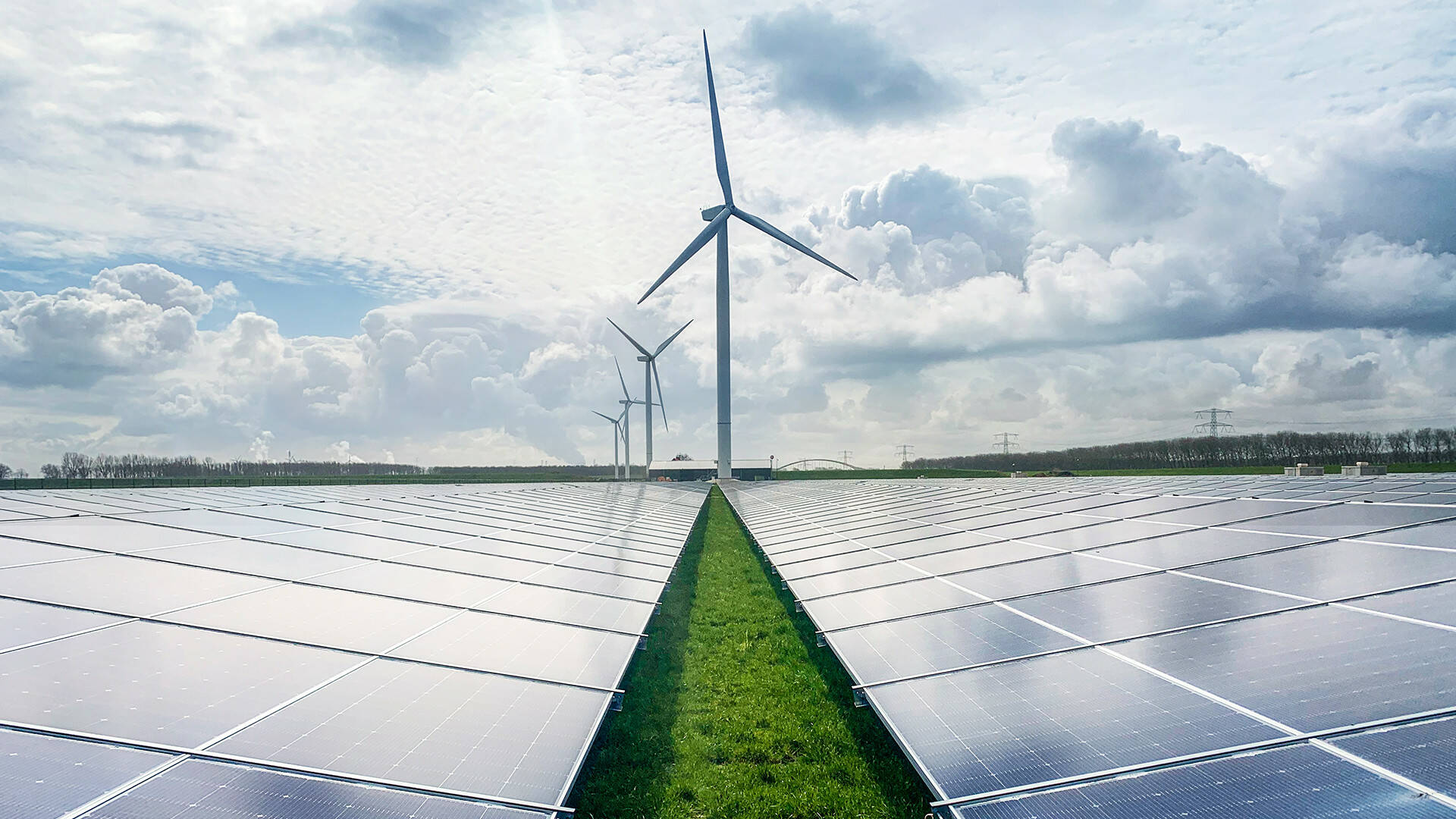
WAAT, on growing at pace in the French
e-mobility market
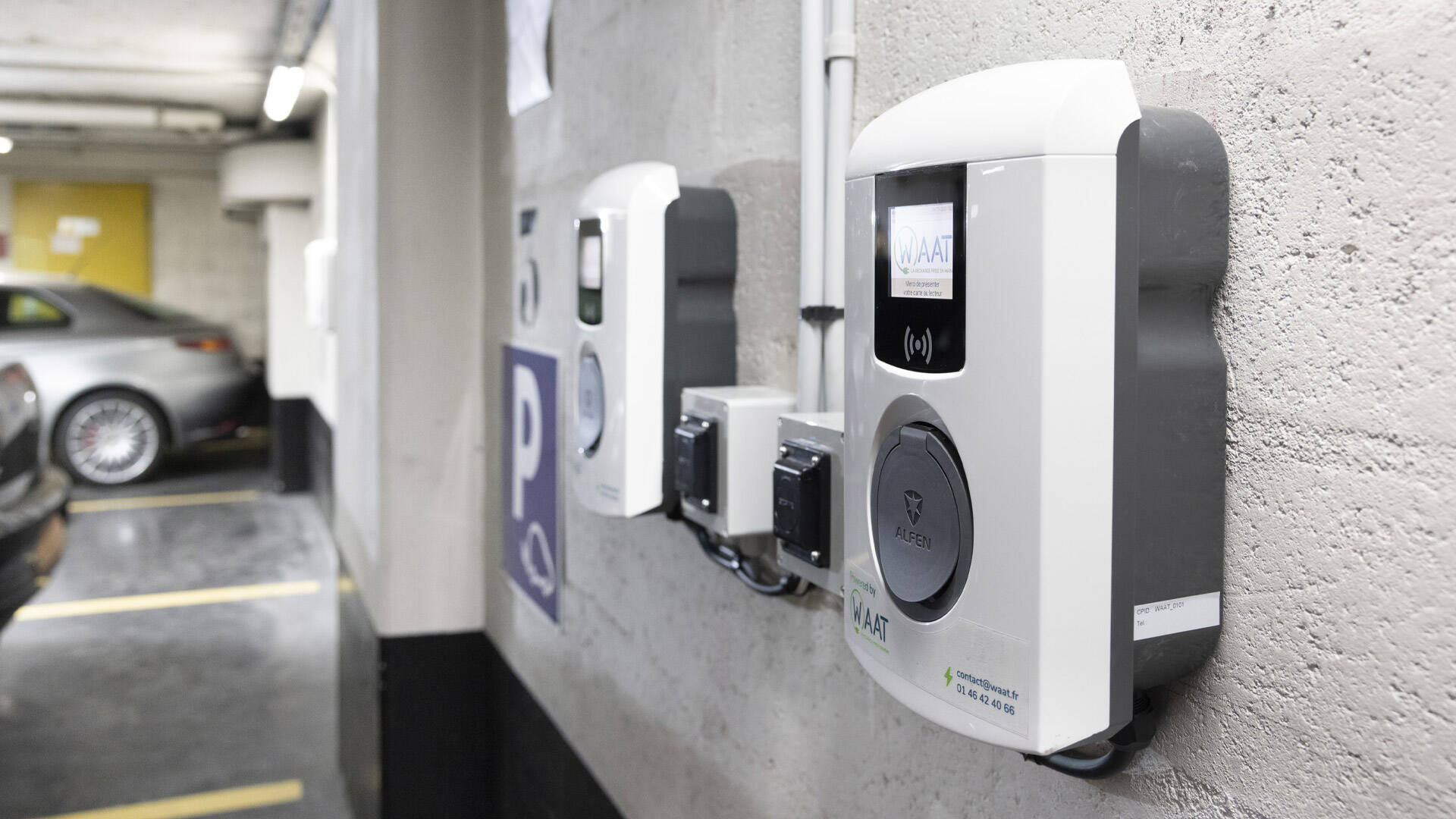
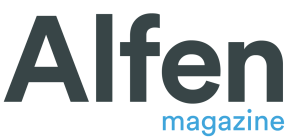

Go to next article

Go back
scroll down

Our partnership is a relationship built on trust which is very important to me and to WAAT. We are not simply a manufacturer and a supplier. WAAT is a young and growing business and so we must be confident that we can count on Alfen in any situation – and we can!
As well as quality of service, Alfen also offers high quality products. The charge points they sell are technologically advanced, with good aesthetics, and are robust and reliable so we don’t have to worry about commissioning them because they always work.
Can you reflect on the relationship with Alfen and how it adds value?
Since the beginning of the year, we have equipped 80-100 building developments per month. That in itself is quite an achievement. We have a contract with Nexity, a large real estate developer in France, to equip all of their new builds with charging stations. We also have a contract with Enterprise rent-a-car in France to equip hundreds of their sites with chargers.
We are also working with the French retailers’ cooperative, Système U, to install charging infrastructure at nearly 1000 independent supermarkets.
Can you tell us about some stand out projects?
What is your growth strategy and what role do data and digitalisation play?
We began as an installation company but soon realised that it was not sustainable or profitable and so rapidly transitioned to a service company, where we offer it all and work with partners, for example, to deliver the back-office technology.
Our aim is to be the leader in France first before we pursue our ambition to move across borders, for example, to Luxembourg, Belgium and Germany and Alfen is key for us in that strategy.
Data and digitilisation are crucial. We are a relatively new company, in an early-stage industry and so customer acceptance and confidence are essential for growth. The products and services we offer must be as intuitive and easy to use as, say, charging a smart phone. QR codes must be visible and accessible and charging should be readily available whenever and wherever people move about, like it is for phones.
We have robust data protection legislation in France and so, while data is crucial, we have a responsibility to use and manage it properly. WAAT has a very customer centric strategy. Our customers come first and sit right at the heart of our business model and data can help us better support them, whether it’s to help make the charge point easy to use, for automatic employer reimbursement of their employees charging at home (one of WAAT’s USPs) or to remotely troubleshoot and fix any problems that may arise.
All of these things require data and connectivity.
“ Our customers come first and sit right at the heart of our business model and data can help us better support them ... ”
Can you tell us about the French e-mobility landscape and where you are positioned in it?
France is a very specific market and, to be successful, it is important to recognise that and understand its unique elements and general culture.
The e-mobility market here is very immature. Only 2.5% of new cars are fully electric or hybrid so penetration is still very low compared to other countries in Europe. The same is therefore true of charging infrastructure – we are still at the very beginning. Things are set to change though.
In 2024, France is hosting the Olympic Games and so the French Government is keen to accelerate EV penetration and the related charging infrastructure by then. As a result, it has introduced a number of incentives and subsidies to stimulate change. There is a grant of up to 7k euros available for people buying EVs and you can get over 50% towards the cost of a charge point. It is also now mandatory to provide charging facilities at 5% of supermarket parking spaces. The OEMs, for example, Citroen, Peugeot and Renault are also strongly supportive and so the opportunity is huge. Just as an example, there are 240,000 buildings in France with underground parking facilities and, at present, only 3,000 of these are equipped with charging stations and often only partially.
In such an immature market, it is really important to find the right business model to ensure that it is economically sustainable. More and more companies arrive in the market each day and many rapidly disappear because they don’t get it right. There have also been a lot of acquisitions. We are one of the few independent companies left.
We have spent a great deal of time getting our own business model right. We offer a turnkey service, we want to do it all or we are not interested because it doesn’t make sense for us. Customer relationships are also absolutely key in the French market. I have customers who have followed me for 20 years and, likewise, we have followed our customers around France. Our relationships are deeper than the type of business relationships you typically find elsewhere in Europe. France is culturally very different in this way.
Technology compatibility is also important. We have no interest in offering our customer a locked product that would need to be replaced if they switched providers. We want our customers to stay with us because they are happy with WAAT, not because they are captive. Customers should be allowed to leave if they are unhappy. In the end, this will be important for the market but it is still early days and so this approach is not the norm at the moment.
Can you introduce yourself and WAAT?
I am an engineer and have worked for over 20 years in the building and energy environment for companies including Engie, Schindler and Siemens. I created WAAT with five other colleagues in 2018 because we could see the potential that the switch to electric vehicles offered and, after some market research, saw a specific opportunity to help apartment owners’ associations to set up charging infrastructure. I act as CEO for the company and so am responsible for the strategic direction and business development.
As well as our headquarters in Paris, we have satellite operations in all the major cities of France including Lyon, Lille, Bordeaux and Marseille and our staff cover the whole country. We currently have 65 employees but we plan to hire an additional 30 people this year to keep up with the business demand. This is quite an achievement because many of our competitors who started in the industry before us are still operating much smaller teams.
The bulk of our activity is in four areas: condominiums, where owners are part of owner associations, real estate developers, the tertiary sector which, for example, includes things like office buildings, industry, supermarkets and hotels, and property lessors.
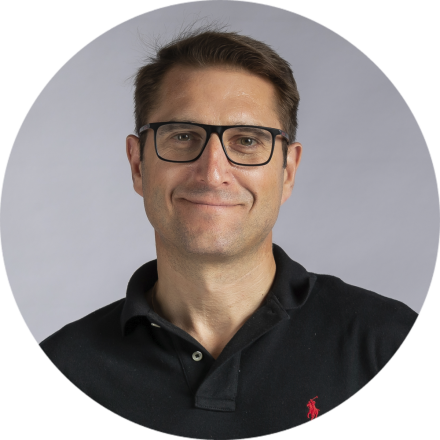
An interview with Patrick Kic,
President at WAAT
WAAT is a French e-mobility company, headquartered in Paris. Founded just 3 years ago, it already has a national presence, an enviable client base, 65 employees and is still growing fast. It has a well-defined offering to the market segments it serves which include condominiums, tertiary and fleets, real estate developers and property lessors and it offers them a turnkey service, from feasibility and installation to operational management
and maintenance.
The company has seven co-founders. Some of them had already worked together in previous jobs and then recognised the enormous opportunity that EV charging offers. We spoke to one of them, WAAT’s President, Patrick Kic, about his experience so far in the French market and the company’s plans for the future.
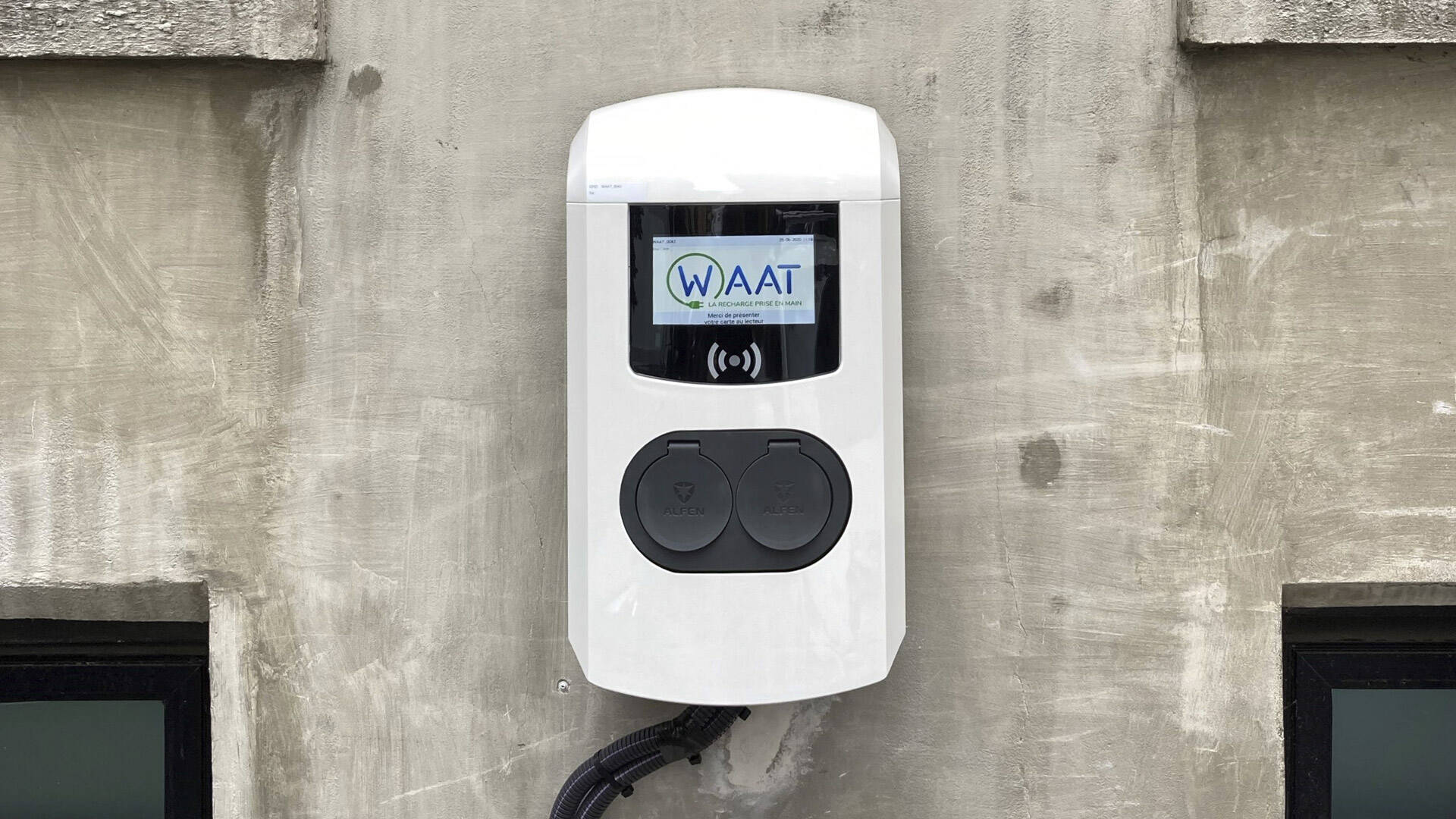

WAAT, on growing at pace in the French
e-mobility market

Our partnership is a relationship built on trust which is very important to me and to WAAT. We are not simply a manufacturer and a supplier. WAAT is a young and growing business and so we must be confident that we can count on Alfen in any situation – and we can!
As well as quality of service, Alfen also offers high quality products. The charge points they sell are technologically advanced, with good aesthetics, and are robust and reliable so we don’t have to worry about commissioning them because they always work.
Can you reflect on the relationship with Alfen and how it adds value?
Since the beginning of the year, we have equipped 80-100 building developments per month. That in itself is quite an achievement. We have a contract with Nexity, a large real estate developer in France, to equip all of their new builds with charging stations. We also have a contract with Enterprise rent-a-car in France to equip hundreds of their sites with chargers.
We are also working with the French retailers’ cooperative, Système U, to install charging infrastructure at nearly 1000 independent supermarkets.
Can you tell us about some stand out projects?


Go to next article

Go back
What is your growth strategy and what role do data and digitalisation play?
We began as an installation company but soon realised that it was not sustainable or profitable and so rapidly transitioned to a service company, where we offer it all and work with partners, for example, to deliver the back-office technology.
Our aim is to be the leader in France first before we pursue our ambition to move across borders, for example, to Luxembourg, Belgium and Germany and Alfen is key for us in that strategy.
Data and digitilisation are crucial. We are a relatively new company, in an early-stage industry and so customer acceptance and confidence are essential for growth. The products and services we offer must be as intuitive and easy to use as, say, charging a smart phone. QR codes must be visible and accessible and charging should be readily available whenever and wherever people move about, like it is for phones.
We have robust data protection legislation in France and so, while data is crucial, we have a responsibility to use and manage it properly. WAAT has a very customer centric strategy. Our customers come first and sit right at the heart of our business model and data can help us better support them, whether it’s to help make the charge point easy to use, for automatic employer reimbursement of their employees charging at home (one of WAAT’s USPs) or to remotely troubleshoot and fix any problems that may arise. All of these things require data and connectivity.

“ Our customers come first and sit right at the heart of our business model and data can help us better support them ... ”
Can you tell us about the French e-mobility landscape and where you are positioned in it?
France is a very specific market and, to be successful, it is important to recognise that and understand its unique elements and general culture.
The e-mobility market here is very immature. Only 2.5% of new cars are fully electric or hybrid so penetration is still very low compared to other countries in Europe. The same is therefore true of charging infrastructure – we are still at the very beginning. Things are set to change though.
In 2024, France is hosting the Olympic Games and so the French Government is keen to accelerate EV penetration and the related charging infrastructure by then. As a result, it has introduced a number of incentives and subsidies to stimulate change. There is a grant of up to 7k euros available for people buying EVs and you can get over 50% towards the cost of a charge point. It is also now mandatory to provide charging facilities at 5% of supermarket parking spaces. The OEMs, for example, Citroen, Peugeot and Renault are also strongly supportive and so the opportunity is huge. Just as an example, there are 240,000 buildings in France with underground parking facilities and, at present, only 3,000 of these are equipped with charging stations and often only partially.
In such an immature market, it is really important to find the right business model to ensure that it is economically sustainable. More and more companies arrive in the market each day and many rapidly disappear because they don’t get it right. There have also been a lot of acquisitions. We are one of the few independent companies left.
We have spent a great deal of time getting our own business model right. We offer a turnkey service, we want to do it all or we are not interested because it doesn’t make sense for us. Customer relationships are also absolutely key in the French market. I have customers who have followed me for 20 years and, likewise, we have followed our customers around France. Our relationships are deeper than the type of business relationships you typically find elsewhere in Europe. France is culturally very different in this way.
Technology compatibility is also important. We have no interest in offering our customer a locked product that would need to be replaced if they switched providers. We want our customers to stay with us because they are happy with WAAT, not because they are captive. Customers should be allowed to leave if they are unhappy. In the end, this will be important for the market but it is still early days and so this approach is not the norm at the moment.
Can you introduce yourself and WAAT?
I am an engineer and have worked for over 20 years in the building and energy environment for companies including Engie, Schindler and Siemens. I created WAAT with five other colleagues in 2018 because we could see the potential that the switch to electric vehicles offered and, after some market research, saw a specific opportunity to help apartment owners’ associations to set up charging infrastructure. I act as CEO for the company and so am responsible for the strategic direction and business development.
As well as our headquarters in Paris, we have satellite operations in all the major cities of France including Lyon, Lille, Bordeaux and Marseille and our staff cover the whole country. We currently have 65 employees but we plan to hire an additional 30 people this year to keep up with the business demand. This is quite an achievement because many of our competitors who started in the industry before us are still operating much smaller teams.
The bulk of our activity is in four areas: condominiums, where owners are part of owner associations, real estate developers, the tertiary sector which, for example, includes things like office buildings, industry, supermarkets and hotels, and property lessors.
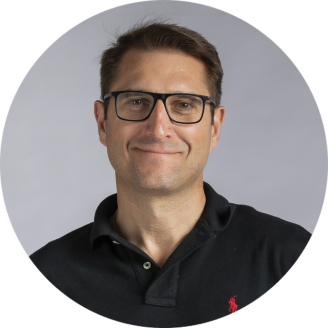
An interview with Patrick Kic,
President at WAAT
WAAT is a French e-mobility company, headquartered in Paris. Founded just 3 years ago, it already has a national presence, an enviable client base, 65 employees and is still growing fast. It has a well-defined offering to the market segments it serves which include condominiums, tertiary and fleets, real estate developers and property lessors and it offers them a turnkey service, from feasibility and installation to operational management
and maintenance.
The company has seven co-founders. Some of them had already worked together in previous jobs and then recognised the enormous opportunity that EV charging offers. We spoke to one of them, WAAT’s President, Patrick Kic, about his experience so far in the French market and the company’s plans for the future.




